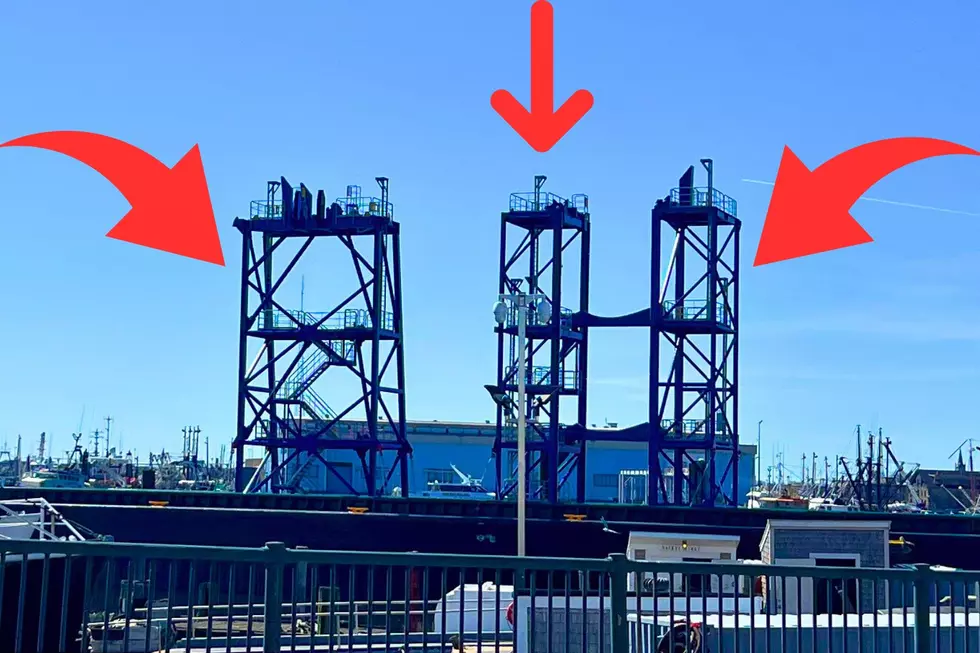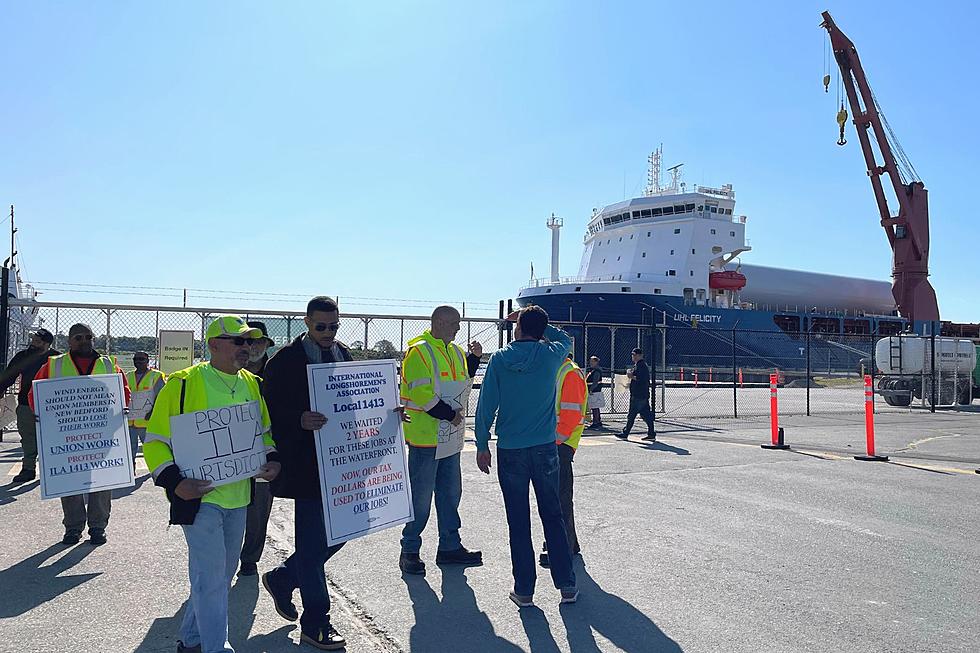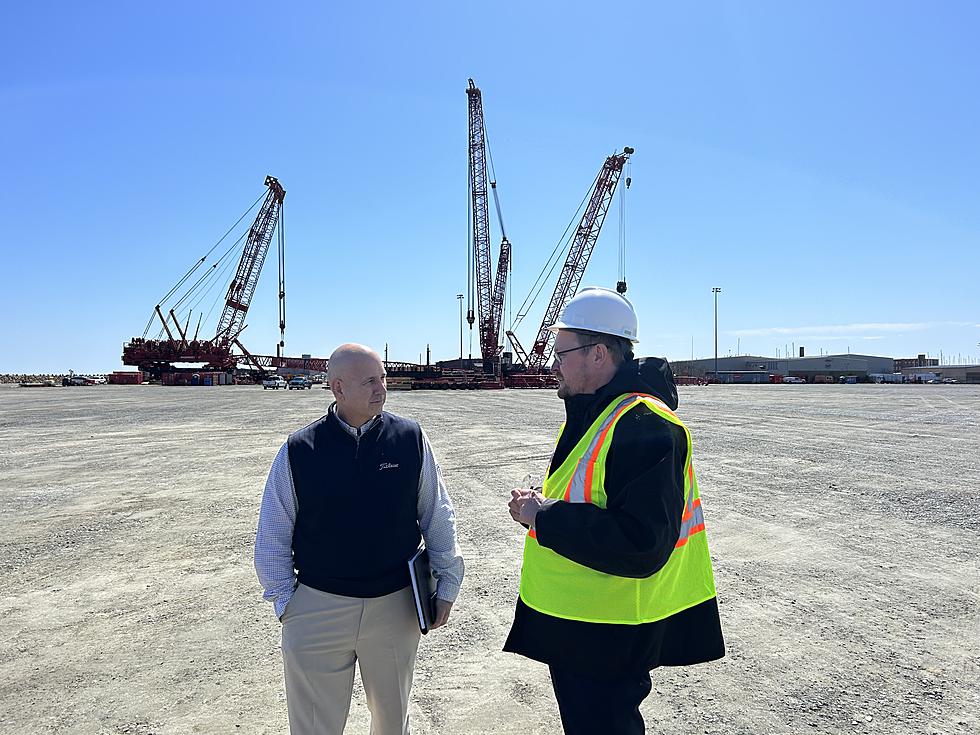
Mass. Delegation Pushing To Advance Vineyard Wind
BOSTON, JULY 23, 2019.....Members of Congress have become involved in trying to move Vineyard Wind forward, a top Baker administration official said Tuesday, as lobbying intensifies to advance what state officials hope will be the nation's first commercial-scale offshore wind project.
Energy and Environmental Affairs Undersecretary Patrick Woodcock told members of the Massachusetts Clean Energy Center Board Tuesday about the involvement of members of Congress since the Bureau of Ocean Energy Management indicated it would not decide on a key project approval this month, as anticipated.
Project officials last week indicated the entire effort is at risk without a favorable federal response by the end of August. Federal officials say they are operating within a review window that extends to March 2020.
"We're going to get that Vineyard Wind project over the finish line," Bruce Carlisle, the center's senior director of offshore wind, told the board, which authorized $3.5 million in new offshore wind-related spending.
In addition to meeting with Vineyard Wind officials last week, Congressman William Keating told the News Service Tuesday that members of the delegation are engaged with business community and "strategic partners" to "demonstrate strong consensus for this project." Keating said he has met with BOEM officials as the project was moving through its review and was surprised about the recent delay, saying reasons for it are "not clear."
Keating suggested the project's financing was vulnerable if it encounters unanticipated delays, and said the snag before BOEM was concerning.
"This was something that wasn't foreseen," Keating said. "I don't think anyone has a clear understanding of what prompted this change ... This is really the vanguard of all industrial-size projects. This has importance well beyond our own project."
"Vineyard Wind would create jobs, power homes and firmly place our region on the frontlines of an emerging Blue Economy," Congressman Joe Kennedy, whose district stretches down to the South Coast, said in a statement to the News Service Tuesday. "We are working closely with the Baker Administration and Vineyard Wind to ensure this critical clean energy project moves forward."
The 800 megawatt project has a lease at the center's New Bedford Marine Terminal, where more than $113 million has been invested in upgrades. With the industry developing along the Atlantic seaboard, there's still "robust opportunity" for more port development, far beyond the New Bedford port, to support the sector, officials say.
Woodcock cautioned about the industry's impacts on commercial fishing, saying regional efforts are needed to ensure responsible offshore development and noting the young sector's rapid growth is drawing attention.
"It's accelerating in a way that I don't think anybody really anticipated," Woodcock said.
There are 16 active offshore wind leases that have made it through the federal planning and siting process, Carlisle said, with additional lease areas to be auctioned in the next year off New York and South Carolina.
At a separate appearance later Monday, Woodcock told the members of the Telecommunications, Utilities and Energy Committee that he had just presented to the National Governors Association on decarbonization and had been surprised to see states like Virginia, North Carolina, South Carolina and the Great Lakes states looking at the offshore wind prices Massachusetts has seen, and starting to think about how they could take advantage.
Referencing the Vineyard Wind permitting delay at the federal level, Woodcock told committee chairman Rep. Thomas Golden, "I do think that the secretary of the interior is taking offshore wind very seriously and understands that reviewing Vineyard Wind is precedent-setting and as a result the precedent that may be established would have implications for all projects across the Northeast."
Bids for a second offshore wind procurement in Massachusetts are due Aug. 9 and the administration is balancing that schedule with a price cap relief measure that reached Gov. Charlie Baker's desk on Tuesday.
The state's 2016 offshore wind law requires the price in each procurement to beat the most recently awarded contract. Calling Vineyard Wind's price "very competitive," Woodcock said there's concern that bidders "may not be able to compete with that price." An outside section in the state budget requires regulators to adjust procurement prices for the availability of federal tax credits, inflation and incentives.
While noting that each project and project contract is different, Woodcock said the value of the investment tax credit since the 2017 decision to work with Vineyard Wind has been reduced from 24 percent to 12 percent.
Secretary for Energy and Environmental Affairs Kathleen Theoharides told Sen. Marc Pacheco at the committee hearing that the administration was reviewing the offshore wind price cap provision in the budget with the goal of making sure the timeline for the second procurement is not disrupted.
"Our goal here is to make sure we stay on timeline, that the language is clear enough that it is able to be interpreted and keep to that timeline to make sure this second RFP can take advantage of the 12 percent ITC. I think we will take a careful look at the language and make sure we are balancing those needs," she said.
Woodcock described an active offshore wind and climate change policy landscape, with recent advancements on major offshore wind procurements in New York and New Jersey, ongoing work with private consultants on ways for the state to meet greenhouse gas reduction targets by 2050, and the Massachusetts House this week set to approve a 10-year plan to use $1 billion in borrowed funds to help communities cope with climate change impacts.
Administration officials said Tuesday that about 70 percent of communities have prepared baseline assessments of climate change risk, embodied in what the state calls municipal vulnerability plans. Woodcock said state officials are also learning from "utility disasters" to better prepare and protect infrastructure.
Woodcock also predicted the technology behind deepwater floating wind turbines will be a focus of research and develepment efforts but said he was uncertain whether that technology would reach the commercial phase.
Information from State House News Service
More From WBSM-AM/AM 1420


![Wareham to Host Offshore Wind Opportunity Forum [TOWNSQUARE SUNDAY]](http://townsquare.media/site/518/files/2014/06/172545585.jpg?w=980&q=75)




![How New Bedford Businesses Can Benefit From Offshore Wind [TOWNSQUARE SUNDAY]](http://townsquare.media/site/518/files/2019/02/GettyImages-81060055.jpg?w=980&q=75)

